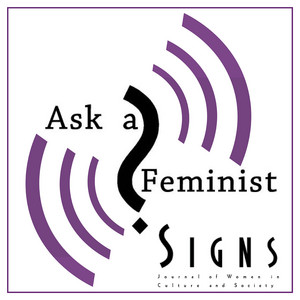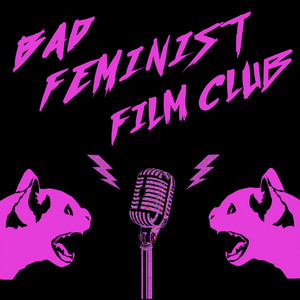Bad Feminist Film Club
A weekly podcast that examines films through a feminist lens while acknowledging the complexities and contradictions of loving problematic media. Hosts Kelly and Sarah discuss everything from classic Hollywood films to contemporary blockbusters, exploring themes of representation, power dynamics, and cultural impact with humor and insight.
🎧 Listen Online Spotify
Related Topics
Bad Feminist Film Club represents a refreshing approach to feminist media criticism, one that embraces complexity, contradiction, and the messy realities of loving imperfect art. Hosted by Nicole Davis, a film studies professor, and Sarah Martinez, a cultural critic and filmmaker, the podcast has built a devoted following by offering thoughtful, nuanced discussions of cinema that avoid both blind praise and knee-jerk condemnation.
The “Bad Feminist” Philosophy
The podcast’s title draws inspiration from Roxane Gay’s concept of the “bad feminist”—the idea that feminism doesn’t require perfection and that it’s possible to hold complex, even contradictory views about media and culture. This philosophy permeates every episode, as the hosts regularly acknowledge their own blind spots, changing perspectives, and the challenge of loving films that may contain problematic elements.
Format and Structure
Each episode typically focuses on a single film or theme, with the hosts providing context about the production, cultural moment, and critical reception before diving into their analysis. The conversation flows naturally between close reading of specific scenes, broader cultural analysis, and personal reflection on how the film affects them as viewers and feminists.
Range of Content
Bad Feminist Film Club covers an impressively diverse range of cinema:
- Classic Hollywood: Examining films from the studio system through contemporary feminist lens
- International Cinema: Exploring how different cultural contexts shape gender representation
- Genre Films: Analyzing how horror, science fiction, and other genres handle feminist themes
- Contemporary Blockbusters: Discussing recent releases and their cultural impact
- Documentary Films: Examining non-fiction cinema’s approach to feminist subjects
Intersectional Analysis
One of the podcast’s strengths is its commitment to intersectional analysis. The hosts consistently examine how gender intersects with race, class, sexuality, and other identity factors. They regularly acknowledge when their own perspectives might be limited and invite guest voices to expand the conversation.
Guest Expertise
The show frequently features guest experts who bring additional perspective:
- Film scholars and critics
- Filmmakers and industry professionals
- Activists and organizers
- Other podcasters and cultural commentators
These guests often provide specialized knowledge about particular genres, cultural contexts, or theoretical frameworks.
Critical Approach
Rather than simply categorizing films as “feminist” or “anti-feminist,” the hosts embrace complexity:
- Contextual Analysis: Considering films within their historical and cultural moments
- Evolution of Perspectives: Acknowledging how feminist film criticism has changed over time
- Multiple Readings: Exploring how different audiences might interpret the same film
- Production Context: Discussing how industry constraints affect creative choices
Educational Value
The podcast serves as an excellent introduction to feminist film theory for general audiences. Complex academic concepts are explained clearly without being dumbed down, making the show valuable for:
- Students studying film or gender studies
- General audiences developing media literacy
- Educators looking for accessible examples of feminist criticism
- Industry professionals interested in audience perspectives
Community Building
Bad Feminist Film Club has cultivated an active community of listeners who engage through:
- Social Media Discussions: Extended conversations about episodes on Twitter and Instagram
- Listener Recommendations: The hosts regularly feature films suggested by their audience
- Live Events: Occasional live recordings and Q&A sessions
- Reading Groups: Book club-style discussions of feminist film theory texts
Production Quality
The podcast maintains high production standards with clear audio, thoughtful editing, and professional presentation. The hosts’ natural chemistry and conversational style make complex theoretical discussions feel like friendly conversations between knowledgeable friends.
Cultural Impact
With ratings averaging 4.6 stars and a growing listener base, the podcast has contributed to broader conversations about:
- The role of feminist criticism in contemporary media discourse
- How audiences can engage critically with imperfect art
- The importance of diverse voices in cultural criticism
- The evolution of feminist film theory
Handling Controversy
Given the potentially controversial nature of feminist film criticism, the hosts navigate disagreement and backlash with nuance and grace. They model how to have productive conversations about difficult topics while remaining open to different perspectives.
Educational Resources
Beyond the podcast itself, the show provides:
- Reading Lists: Recommendations for further exploration of topics discussed
- Film Lists: Curated collections of films organized by theme
- Theoretical Primers: Accessible explanations of key feminist film theory concepts
- Discussion Guides: Resources for educators and book clubs
Notable Episodes and Themes
Some of the podcast’s most impactful episodes have tackled:
- The evolution of the “final girl” trope in horror films
- Representation of motherhood in contemporary cinema
- The male gaze and female spectatorship
- Intersectionality in superhero films
- The politics of romantic comedies
Future Directions
As the podcast continues to grow, the hosts have expanded their scope to include:
- Television analysis alongside film criticism
- Interviews with filmmakers about their creative processes
- Exploration of emerging platforms and new forms of visual media
- International perspectives on feminist film criticism
Conclusion
Bad Feminist Film Club succeeds because it models a mature, nuanced approach to feminist media criticism. By embracing complexity and contradiction, the podcast creates space for productive conversations about art, culture, and politics that avoid both uncritical celebration and wholesale condemnation.
The show’s commitment to intersectional analysis, combined with its accessible presentation and high production values, makes it valuable for both newcomers to feminist film criticism and more experienced viewers looking for fresh perspectives. The hosts’ willingness to examine their own assumptions and evolve their thinking creates a dynamic, engaging listening experience.
In an era where cultural criticism often becomes polarized, Bad Feminist Film Club demonstrates that it’s possible to love art critically and engage with media thoughtfully. The podcast’s success proves that audiences are ready for sophisticated cultural criticism that acknowledges complexity while maintaining political engagement and personal passion for cinema.
Podcast Info
Complete transcripts and resources available at badfeministfilmclub.com
Related Podcasts
评论与讨论
与其他听众一起讨论这期播客的内容和观点
加入讨论
与其他听众一起讨论这期播客的内容和观点
加载评论中...

